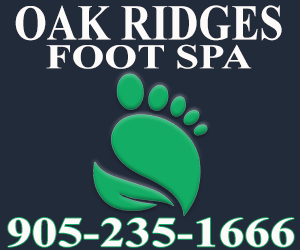M
mnews
Guest

On May 20, the Fairfax County Board of Supervisors signaled support for moving forward with the first rewrite of the county’s massage therapy regulations in 25 years.
The proposed changes would shift regulatory oversight of the massage industry from the Department of Cable and Consumer Services to the county’s Health Department. The amendments would also include provisions to allow faster responses to concerns raised about individual massage establishments.
“Illicit massage businesses (IMBs) have operated in plain sight in Fairfax County and become safe havens for human trafficking,” said Springfield District Supervisor Pat Herrity, who is leading an effort to revise the massage regulations and create a non-permissive environment for IMBs. “Regular, random inspections by county agencies and revised regulations will help us address these illicit businesses, fight human trafficking and get victims the help they need.”
While most massage therapy businesses operate legitimately, “there are some bad actors,” said Jessica Werder, Fairfax County’s Deputy Director of Public Health Operations, during a Board’s Safety and Security Committee meeting. Werder said that the Department of Cable and Consumer Services “does not have a lot of tools” to address potential issues, but that the Health Department does.
“They’re limited in what they can do and look at,” Herrity said. “This is to really push these illicit massage businesses that are operating in plain sight today out of the county.”
Fairfax County first adopted an ordinance regulating massage businesses in 1975 and last completed a rewrite in 2000.
Recent data from the May 20 meeting showed that 287 massage parlors operate in Fairfax County. However, Herrity said at one point, between 80 and 100 businesses were believed to be illicit.
“Illicit massage businesses are one of the largest forms of trafficking in the United States,” said Herrity. “These IMBs hide in plain sight in strip malls and business parks among legitimate businesses.”
According to staff, there are currently about 550 licensed massage therapists in the county, a decrease from more than 700 before the COVID-19 pandemic. Approximately 287 licensed massage establishments are spread across all nine of the county’s districts. Over the past decade, the county has issued a total of 1,961 massage establishment permits, including 66 permits as of April 23 of this year.
The county has taken action on roughly 5,880 massage therapist permits in the past decade, denying 12, suspending one, revoking one, appealing three and approving the rest. Since fiscal year 2016, which began on July 1, 2015, and ended on June 30, 2016, only two massage establishment permit requests have been denied.
Under the new framework, individual massage therapists would no longer need to obtain a separate county license or pay the related fee, since the Virginia Department of Health Professions would already license them. However, the annual permit fee of $75 per location, set when the ordinance was last updated in 2000, would increase to $200 under the new ordinance.
New provisions of the ordinance include: a prohibition on controlled entry via locked doors, a prohibition on sleeping quarters in or adjacent to a massage therapy facility and a ban on employees drinking alcohol on the premises and possessing or using illicit controlled substances. Establishments would also be prohibited from advertising with “obscene, erotic or sexually explicit advertising.” If there are facilities with identified issues, the staff may be required to complete new training. Businesses could also be required to provide financial records to county officials.
“This is really designed to address the human trafficking element of illicit massage businesses,” Herrity said.
In 2024, a woman from Fairfax was arrested at the Healthy Massage spa in Beaver Township, Ohio, on felony charges of promoting prostitution and possessing criminal tools, as well as a misdemeanor charge of soliciting, according to multiple news reports. The arrest occurred just days after that business and several others in the area were raided as part of investigations led by local police and the Mahoning Valley Human Trafficking Task Force.
“It is possible to close these IMBs in Fairfax County and sustain a non-permissive environment so they can’t exist here again,” Herrity said. “I look forward to mobilizing the various departments, agencies and our nonprofit community partners to effectively end the illicit massage industry in Fairfax County.”
Under the proposed timeline, county staff will carry out outreach efforts throughout the summer and early fall, then draft the final language for the updated ordinance for the Board of Supervisors to review by the end of the year. If approved, the new regulations could take effect on January 1, 2026.





























































































